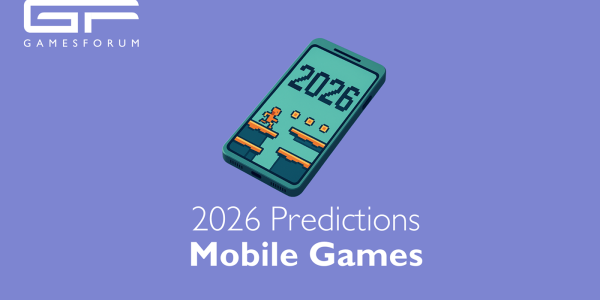What does 5G mean for mobile gaming? Spoiler: It’s everything

The arrival of 5G as the standard cellular network is bound to impact the mobile game market and industry. That much is near-inevitable. Just how profound any transformation will be? That’s a little less clear.
By Will Freeman, Freelance Writer
Famously, establishing the 5G network hasn’t been without significant challenges. Global concerns have emerged about the Chinese tech giant Huawei, which has been providing infrastructure for the developing network. Those concerns around national security – perhaps amplified and politicised by tensions between China and the US – have led to the UK deciding to ban Huawei 5G equipment from its own network, which includes the removal of that which is already installed. That shift will delay the UK’s 5G rollout by up to a year, according to Digital Secretary Oliver Dowden.
Meanwhile, the ongoing coronavirus pandemic has whipped up conspiratorial theories about the true intention of 5G. The layperson in 2020 may not know a great deal about the technological nuance powering the coming cellular network, but almost everyone is aware of fringe groups burning down 5G towers, under the assumption that they are the cause of COVID-19’s spread.
Regardless, 5G continues to be set to arrive in the UK and globally. Indeed, some 20 countries had 5G infrastructure in place at the close of 2020. But what of that impact on mobile games?
The basic idea behind 5G is that it opens up faster wireless broadband on mobile, while serving a great many more devices. That fundamentally simple change could affect mobile in profound ways, as we’ll see below.
The rise of mobile cloud gaming
Recent years have seen cloud become a key trend in the realms of PC and console gaming – with Google, Amazon, Microsoft and more each exploring the space to various degrees. In a typical cloud gaming set-up, titles are stored on remote servers. Those games are then streamed to player’s machines, meaning users don’t need to download or store the titles they play, while harnessing superior computing power at a distance. 5G will likely see a boom in mobile cloud gaming, the impact of which could well be more significant than that seen in console and PC. That’s because a robust, reliable, high-capacity broadband connection is essential for workable cloud gaming - and 5G brings just that to mobile. With 5G’s arrival proper, smartphones would suddenly be granted access to computing muscle that trumps a high-end gaming PC, without any need to give on-board memory over to storage. That should see a great many more gaming forms become applicable to mobile, including the ambitious, grand and entirely original. That in turn could motivate new monetisation models, a fresh rulebook for user acquisition, and ever more audiences turning to mobiles for gaming. Equally, the debut of remote computing power through 5G means we may see a rise of cross platform, with game experiences and online player bases spanning mobile, PC and console seamlessly.
Subscription services
Highly related to cloud will be the expected increase in subscription services like Apple Arcade. Cloud typically offers access to a range of games at a regular fee, rather than ownership of individual titles. Of course, today we live in the era of free-to-play, but many mobile games essentially engage and retain by offering what feels like a very personal experience akin to ownership. There’s a lengthy academic debate to have about the notion of owning something that is free, but that is for another day. In terms of a ramping up of mobile subscription services, it is monetisation that may be most affected. ‘Free-to-subscribe’ services may emerge. The games they collect together could exist as separate entities, each with their own distinct monetisation structures. But it might make a great deal more sense for that subscription service to offer a universal monetisation model across its catalogue – or at least standardised soft currencies. Again, the conventions of monetisation and user acquisition might need to be reinvented – and that may also mean a shaking up of the industry hierarchy, with new and established players moving on subscription approaches.
Multiplayer and more
Increased wireless broadband network and speed on mobile devices will absolutely mean a greater capacity for multiplayer nuance and scale. More players will be able to share simultaneous experiences in more ways. That should mean new genres and innovative spins on existing forms, a yet greater presence of esports on smartphone, and – once more – original ways to monetise, acquire, engage and retain. Equally, increased bandwidth may mean a rise in the likes of location-based gaming. Considering the phenomenon of popular culture that Pokémon GO! became in this pre-5G world, the potential there is tremendous.
Hybrid forms?
Streaming and video are now well established as leading influential forces in terms of giving games’ regard, success and exposure. In fact, watching video games is arguably now more popular than playing them. With Google’s Stadia cloud platform, users have been able to explore hybridised forms of video and video game. For example, Stadia’s Crowd Play function makes it possible to watch a streamer playing live, hit ‘play’, and leap straight into the game with them, joining them for multiplayer near instantly. Granting mobile’s that ability would be extraordinary – especially considering how convenient such devices make digesting video content on the move.
Combining mobile’s highly social and portable nature with location gaming, high-end multiplayer, subscription services and more could be much more of a revolution than an evolution. Certainly, 5G’s arrival will be felt across development, publishing, monetisation and more. Nobody can absolutely predict how much things will change, but one thing is clear; the next generation of cellular network will be about much more than improvements in download speed.











